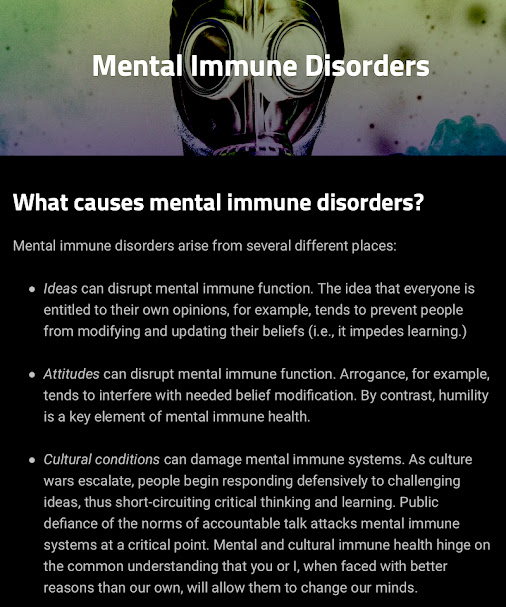…It's a very natural evolution of technology, which is, people are very accustomed to sensors and their smart watches, and in their rings that track their heartbeats and footsteps and breaths and body temperatures.
8:47
And so the idea that brain sensors can now detect and decode our brain activity is a natural progression of where technology and the quantified self movement is. But it was only when I started to hear from technologists themselves about moving from.
9:05
You know what had been a category of technology that had really been niche products, with very limited applications
9:11
to embedding brain sensors into our everyday devices, like earbuds and headphones and watches and wearable tattoos, and how that not only will decode and give us access to our brain activity, but enable us to have a new way of interfacing with technology that I really understood
9:28
how urgent the conversation was that this was about to be a transformational technology. and, unlike AI, where everybody is talking about it. Nobody seems to be talking about this transformational technology that's happening. So
9:42
that made like it made it incredibly urgent for me to. Then, finally, with all these ideas percolating for a very long time to write this book, and to define this category of cognitive liberty and lawn in our lives…
UPDATE: DEMOCRACY UPSHOT?
Tech and democracy are not friends right now. We need to change that — fast.
As I’ve discussed previously in this series, social media has already knocked a pillar out from under our democratic institutions by making it exceptionally easy for people with extreme views to connect and coordinate. The designers of the Constitution thought geographic dispersal would put a brake on the potential power of dangerous factions. But people no longer need to go through political representatives to get their views into the public sphere.
Our democracy is reeling from this impact. We are only just beginning the work of renovating our representative institutions to find mechanisms (ranked choice voting, for instance) that can replace geographic dispersal as a brake on faction.
Now, here comes generative artificial intelligence, a tool that will help bad actors further accelerate the spread of misinformation...
The chilling effects of government surveillance have been extensively documented. Dr. Elizabeth Stoycheff, a professor of communications at Wayne State University, studies the ways that mass surveillance affects people’s behavior. In one study, Stoycheff created a baseline psychological profile of research participants based on their surveyed ideological beliefs, personality traits, and online activity. Then she subtly reminded a random subset of those participants that they were subjects of mass government surveillance. Afterward, all the participants were shown a made-up newspaper headline which stated that the United States had undertaken airstrikes against the Islamic State in Iraq and were asked their opinion about it, including how they thought other Americans would feel and whether they would be willing to voice their own opinions in public. The participants who had been primed to think about mass government surveillance were significantly more reluctant to share their nonconforming views, even when their personality profiles predicted otherwise. This underscores the significant impact of self-censorship in response to surveillance and reinforces decades of research on the “spiral of silence” that was first identified in 1974 by the German political scientist Elisabeth Noelle-Neumann—the phenomenon in which the perception that one’s opinion is unpopular makes one reluctant to express it.
What most dismayed Stoycheff was people’s cavalier dismissal of surveillance. “So many people I’ve talked with say they don’t care about online surveillance because they don’t break any laws and don’t have anything to hide. I find these rationales deeply troubling,” she mused. “It concerns me that surveillance seems to be enabling a culture of self-censorship because it further disenfranchises minority groups. It is difficult to protect and extend the rights of these vulnerable populations when their voices aren’t part of the discussion. Democracy thrives on a diversity of ideas and self-censorship starves it. Shifting this discussion so Americans understand that civil liberties are as fundamental to the country’s long-term well-being as thwarting very rare terrorist attacks is a necessary move.”
Freedom of thought is at the heart of those civil liberties; without it, the diversity of ideas necessary for human flourishing is silenced. Just as surveillance chills people from sharing their nonconforming views, thought surveillance will inevitably lead people to attempt thought modification—trying to silence their inner voices, risking a dangerous spiral that ends with the suppression of even their innermost views. Making it of paramount importance that we prohibit governments’ surveillance of thought.
Government surveillance of brain activity will inevitably push us toward greater conformity. With greater conformity comes a passive acceptance of authority and authoritarianism, either out of fear or in hopes of appearing cooperative, even when that conflicts with one’s own moral compass. Children are particularly susceptible to pressure to conform and so are even likelier to try to redirect divergent thinking for fear of being ostracized. Many of the worst atrocities are “crimes of obedience”: acts carried out in response to orders from authority that violate legal and social norms.
To know the difference between right and wrong, and to decide for ourselves what that is, we must have the freedom to think critically about the world around us. Freedom of thought guarantees us a private space to think and self-reflect, where we are free from fear of reprisal. This gives us the wherewithal to reject orders that we know are wrong.
This freedom is critical for all of us, not just great thinkers. John Stuart Mill made this point eloquently in On Liberty, arguing that “it is as much, and even more indispensable to enable average human beings to attain the mental stature which they are capable of.” When we have the freedom to think, we can decide for ourselves whether we want to be angry about a setback or an insult from another; we can investigate our feelings and align our instincts with our self-identity. But we can do so only in a mental space that is free from government surveillance.
Farahany, Nita. The Battle for Your Brain (pp. 75-77). St. Martin's Publishing Group. Kindle Edition.
































